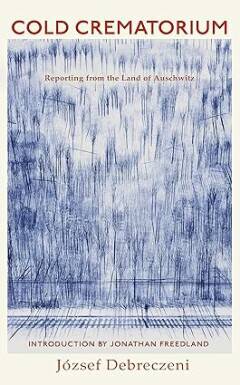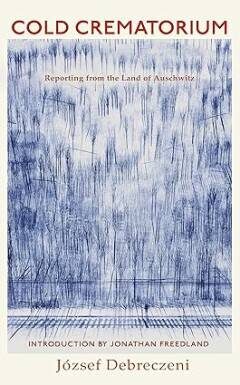
- Afhalen na 1 uur in een winkel met voorraad
- Gratis thuislevering in België vanaf € 30
- Ruim aanbod met 7 miljoen producten
- Afhalen na 1 uur in een winkel met voorraad
- Gratis thuislevering in België vanaf € 30
- Ruim aanbod met 7 miljoen producten
Zoeken
€ 28,95
+ 57 punten
Uitvoering
Omschrijving
When József Debreczeni arrived in Auschwitz in 1944, had he been selected to go 'left', his life expectancy would have been approximately forty-five minutes. One of the 'lucky' ones, he was sent to the 'right', which led to twelve horrifying months of incarceration and slave labour in a series of camps, ending in the 'Cold Crematorium' - the so-called hospital of the forced labour camp Dörnhau, where prisoners too weak to work were left to die.
Debreczeni beat the odds and survived. Very soon he committed his experiences to paper in Cold Crematorium, one of the harshest and powerful indictments of Nazism ever written. This haunting memoir, rendered in the precise and unsentimental prose of an accomplished journalist, compels the reader to imagine human beings in circumstances impossible to comprehend intellectually.
First published in Hungarian in 1950, it was never translated due to the rise of McCarthyism, Cold War hostilities and antisemitism. This important eyewitness account that was nearly lost to time will be available in fifteen languages, finally taking its rightful place among the great works of Holocaust literature more than seventy years after it was first published.
Debreczeni beat the odds and survived. Very soon he committed his experiences to paper in Cold Crematorium, one of the harshest and powerful indictments of Nazism ever written. This haunting memoir, rendered in the precise and unsentimental prose of an accomplished journalist, compels the reader to imagine human beings in circumstances impossible to comprehend intellectually.
First published in Hungarian in 1950, it was never translated due to the rise of McCarthyism, Cold War hostilities and antisemitism. This important eyewitness account that was nearly lost to time will be available in fifteen languages, finally taking its rightful place among the great works of Holocaust literature more than seventy years after it was first published.
Specificaties
Betrokkenen
- Auteur(s):
- Vertaler(s):
- Uitgeverij:
Inhoud
- Aantal bladzijden:
- 256
- Taal:
- Engels
Eigenschappen
- Productcode (EAN):
- 9781787334649
- Verschijningsdatum:
- 18/01/2024
- Uitvoering:
- Hardcover
- Afmetingen:
- 225 mm x 144 mm
- Gewicht:
- 364 g

Alleen bij Standaard Boekhandel
+ 57 punten op je klantenkaart van Standaard Boekhandel
Beoordelingen
We publiceren alleen reviews die voldoen aan de voorwaarden voor reviews. Bekijk onze voorwaarden voor reviews.







